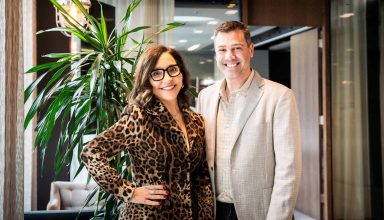'I could've kept him alive': UAE residents call for first aid education, say it is difference between life and death

‘I could’ve kept him alive’: UAE residents call for first aid education, say it is difference between life and death

For Dubai resident M.J, one of the worst days in his life was earlier this year when his father suffered a heart attack in their home. “I was in the bathroom taking a shower when I heard a thud,” he recalled. “I just peeked out and found my father lying on the floor. I rushed out and checked on him but he was not responding. I quickly called the emergency services.”
However, by the time the ambulance arrived, his father had died of a massive cardiac arrest. “I cannot stop thinking about how things would have been different if I was with him as soon as he suffered chest pain or if I knew basic first aid to keep him alive till the ambulance came,” he said.
M.J.’s father is one of the scores of people who could have survived if they had received timely first aid intervention. In 2019, a survey of over 1,000 people in the UAE by YouGov showed that only 24 per cent said they are trained in giving cardiopulmonary resuscitation (CPR) and only 33 per cent are skilled in performing basic first aid treatments.
According to experts, administering timely first aid can greatly increase the chance of survival of an individual. “If given to a patient with cardiac arrest in under one minute, it can increase the survival rate of a person by 40%,” said Dilip Heble of Gayo Fitness Academy, Dubai. A first aid trainer since 2009, Dilip has trained over 1,000 people from around the world. “Every one minute of delay causes a 10 percent higher risk of death.”
Experts are now calling on more UAE residents to master this skill so that they can provide lifesaving assistance in emergencies.
Difference between life and death
One person who made the difference between life and death for a Dubai resident was nurse Priscilla Bency. Last year, she was on her way home on a public transport bus after her shift when an elderly co-passenger suffered a heart attack. Even though she thought the man was dead, Priscilla continued to administer CPR, eventually saving his life.

“As soon as a passenger alerted that the man was slumped on his seat, I rushed to his aid,” she said. “I could not get a pulse and the breathing was very shallow but once I started performing CPR, he began to respond.”
She performed the lifesaving skill for over 20 minutes until emergency responders arrived. The man, who worked as a vegetable seller, was on his way home after feeling uneasy at work. “If I was not there and had CPR not been performed on the man, he would have died before first responders got to him,” she said. “In an emergency, every second counts and if more people knew basic lifesaving skills, it would be instrumental in saving hundreds of lives.”
Safer communities
According to experts, such incidents highlight the importance of having basic lifesaving skills. “In an age where every second counts, equipping the general public with basic lifesaving skills has never been more crucial,” said Dr Zeynep Zehra Gumus, internal medicine specialist at Aster Royal Clinic. “Trained bystanders who step in to stabilize victims until professional help arrives can significantly boost survival rates and mitigate the severity of injuries.”

She said communities that are good at lifesaving techniques are inherently safer. “This collective preparedness fosters resilience, ensuring that help is always at hand when disaster strikes,” she said. “It’s a societal asset that enhances public safety. Moreover, widespread education in lifesaving skills supports and complements the efforts of emergency services. By bridging the gap before professionals arrive, these trained individuals provide a critical lifeline, ultimately strengthening the entire emergency response system.”
Dilip said that first aid skills are relatively easy and quick to learn. “It takes about six hours for a group of 15 trainees to learn the principles of first aid,” said Dilip. “They can learn the principles of treating injuries, stoppage of arterial, venous or capillaries bleeding, bandaging, administering CPR and using a defibrillator.”
He said these skills are especially important in the UAE. “In this country, about 30 to 70 percent population suffer from cardiovascular disease and 20 percent of the adults smoke,” he said. “Thus, first aid is very relevant in the UAE and can be taught in schools and colleges as well.”
ALSO READ:
source: khaleejtimes



